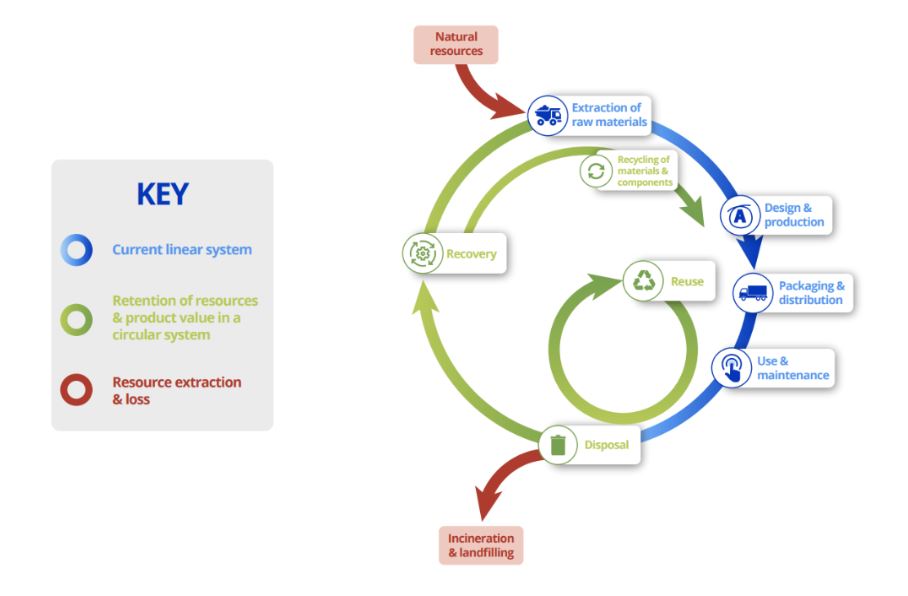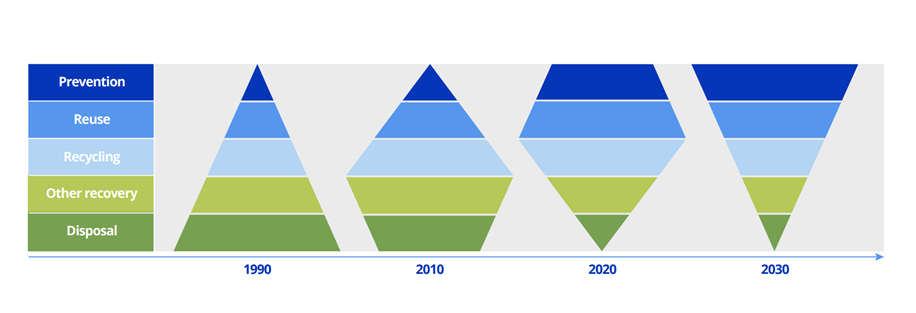Simon Scholes, Director at Oakdene Hollins, talks about greenwashing and recycling claims.
The Innocent drinks brand has become synonymous today as an example of ‘greenwashing’. The company made claims that those buying its drinks would be positively impacting the environment. In reality, the Advertising Standards Authority ruled that those claims were misleading, and that they had actually exaggerated the total environmental benefits of the drink.
Encouraging people to feel a certain way if they use your product is one of the oldest marketing ploys in the book – an emotional reaction to a sumptuous bed (best night’s sleep), or a family dinner round the kitchen table (talking togetherness), or a cosy evening on a comfortable sofa (de-stressing after a long day) feeds into a collective psyche of familial warmth and wellbeing. Green claims are equally appealing to that collective psyche – of doing good, assuaging guilt – and for marketeers it is a compelling narrative.
But with the planet fast becoming one of the most important considerations for businesses the world over, are sustainability claims beginning to push the boundaries of reality?
Oakdene Hollins is an environmental consultancy that has played a crucial role in helping furniture companies better understand and implement tangible sustainability processes. Director Simon Scholes highlights how the industry’s complex supply chain can add to the doubt and confusion around the validity of green claims.
“If you take the manufacture of mattresses as an example, you need to take into account materials and processes, regulatory developments such as chemicals and fire retardants, energy costs, labour issues, the provenance of raw materials and components.

“Add to that the packaging and delivery. And then several years down the line what are the end of life implications of the mattress – can it be recycled? Does it contribute to a waste of natural resources? Ultimately it is not enough the slap on a ‘recycled’ marketing sticker if that claim can not be thoroughly proven with scientific fact at every stage of the process,” continued Simon Scholes.
Regulatory initiatives, such as the UK Green Claims Code and the European Green Claims Directive should provide essential guidelines within an organisation’s drive to avoiding the green claims trap. “Within these guidelines it is emphasised that sustainability claims must address the entire life cycle of a product, from ideation right through to EoL (End of Life), rather than just a marketing strap line,” Simon said.
“The question is, where do you start? Terms such as ‘circular economy’ and ‘closed loop systems’ can cause even the most determined of companies to come screeching to a terrified halt, eyes blinking in the headlights, before they have even started their green journey.”
Simon firmly believes that the way forward lies in developing a collaborative approach (rather than a competitive one).
“Trade associations are the natural leaders for this kind of initiative,” stated Simon. “While an industry’s scope of companies can be fragmented and unequal, with varying levels of hunger for investing in overhauling processes towards greater sustainability, trade associations can level the playing field and scale the support to be more financially accessible – something which is particularly important for the smaller players.”
Oakdene Hollins, for example, produced an EcoDesign Principles Guide which formed part of the NBF’s (National Bed Federation) Pledge for Our Planet. Within the guide, Oakdene Hollins distilled the processes behind the often complicated area of EcoDesign into an easy to follow framework that is directly relevant to product development in the bed industry.

The overarching focus of the great body of work that goes into monitoring regulations and applying them to certain industry sectors, is to ensure that the move towards environmental sustainability is quantifiable and verifiable.
“The duplicitous nature of unfounded marketing campaigns does not just do damage to the brand,” added Simon Scholes. “They rock the very faith that the buying public have in our general drive towards greater sustainability. The more they feel duped, the less importance it will have on their overall buying decisions.”
It is clear that simply stating that your product is 100% recyclable does not show the full picture. Are all components recycled? Can they all be recycled at EoL? Does it form part of a closed loop system? Is recyclability woven into overall design?
“It is clear that stepping into the drive towards sustainability encourages more questions than gives definitive answers – and that’s a good thing,” Simon adds. “Because only by facing these questions will the industry as a whole be in a position to raise its environmental game and eliminate the greenwashing that is still so prevalent.
“Oakdene Hollins facilitates responses to these questions through tools such as Life Cycle Assessment (LCA) and carbon accounting, which offer quantitative methods to substantiate green claims.”















